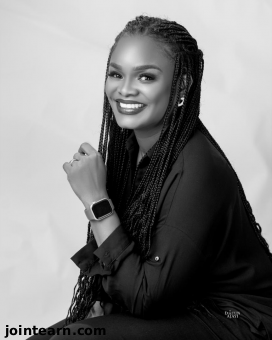
WILAN Global has sounded renewed alarm over the slow pace of women’s inclusion in governance and corporate leadership with the release of its inaugural State of Women’s Leadership in Nigeria report.
Launched alongside the next phase of the organisation’s MsRepresented advocacy campaign, the report exposes persistent gender imbalances across public and private institutions—despite Nigeria’s long-standing commitment to the 35% affirmative action target under the National Gender Policy.
Speaking at the unveiling, WILAN Global Founder and Executive Director, Abosede George-Ogan, said Nigeria’s leadership landscape remains deeply unequal.
She described the country as “a study in contrasts,” noting that although women are central to economic and social growth in households, communities, and key sectors, they remain largely excluded from decision-making spaces.
“Women are powering households, businesses, and frontline services, yet they are missing where decisions are shaped. The issue is not capability; it is the systems that restrict access,” she said.
Severe Underrepresentation Across All Levels of Government
The report reveals that of the 469 lawmakers in the 10th National Assembly, only 21 are women—a mere 4.5 per cent, placing Nigeria among the lowest in Africa for female parliamentary representation. Cabinet positions show a similar pattern: just eight women among 48 ministers and 10 women out of 34 presidential advisers, far below the 35% benchmark.
At the state level, women hold 49 of 988 seats in state assemblies. While states such as Kwara—where women constitute 46% of the cabinet—alongside Ekiti, Oyo, Taraba, Anambra, and Kaduna demonstrate noticeable progress, most states remain far behind.
The judiciary performs comparatively better, with 15 states currently led by female Chief Judges, and a woman serving as the Chief Justice of Nigeria. Women also occupy nearly one-third of positions at both the Supreme Court and the Court of Appeal.
Local Government and Corporate Leadership Reflect Wider Gaps
At the local government level, only 41 of 811 chairpersons nationwide are women. In councillorship positions, women hold 604 of 8,773 seats. Southern states such as Akwa Ibom and Cross River show stronger performance, while several northern states record no female councillors at all.
In the private sector, women hold 31% of board seats across the top 50 companies listed on the Nigerian Exchange (NGX). However, only five companies have female board chairs. Financial institutions lead largely due to regulatory incentives, while sectors like oil and gas, technology, and utilities continue to lag behind.
The report also highlights stark inequalities in health and education—areas where women dominate frontline roles but remain missing from senior management due to cultural norms, pervasive biases, and structural barriers.
Call for Urgent Action
WILAN Board Member, Nafisa Atiku-Adejuwon, said the data should compel leaders at all levels to prioritise meaningful reforms.
“Women are not underperforming; they are underrepresented. The data gives leaders a benchmark to act decisively,” she said.
WILAN Global urged federal and state governments, private sector leaders, and political stakeholders to treat the 35% affirmative action quota as a minimum threshold to unlock the full potential of Nigeria’s female population and strengthen national development.


Leave a Reply